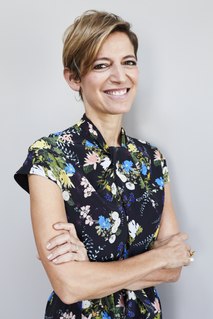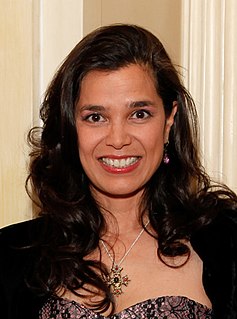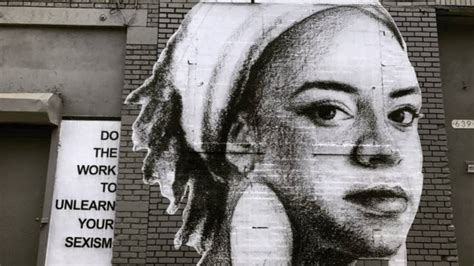A Quote by Cynthia Leive
Women are increasingly perceptive about the way media images are manipulated
Quote Topics
Related Quotes
I am inspired by the reality that actions we take in the real world, no matter how seemingly small, can have impact on people's lives in a positive way. I have always been motivated by the desire to improve the world for women, in particular in the media - because the media is the "face" of the collective philosophy; watching media tells you what we think of ourselves and our "ideal" images and states of being.
CGI means, just to be clear, creating any type of image with a computer. Basically, starting off with nothing, or with images and manipulating them. The way we did it, everything was actual photographed images. A lot of that stuff was shot through a microscope of chemical reactions, yeast growing, lots of weird things, by Peter Parks. We put it into a computer and collaged it, manipulated it. Meaning we digitally shaped it to fit with other images. But there was no computer-generated imagery at all.
At the same time women are putting on the headscarf, they are also going to work, to education, increasingly vocal in the media - and this is the confusing thing about Muslim women in the West,. They are becoming Westernized at the same time as they are adopting their religious identity more strongly.
To make computer science more attractive to women, we might help young women change how they think about themselves and what's expected of them. But we might also diversify the images of scientists they see in the media, along with the decor in the classrooms and offices in which they might want to study or work.
I am myself a professional creator of images, a film-maker. And then there are the images made by the artists I collect, and I have noticed that the images I create are not so very different from theirs. Such images seem to suggest how I feel about being here, on this planet. And maybe that is why it is so exciting to live with images created by other people, images that either conflict with one's own or demonstrate similarities to them.
What Warcollier demonstrated is compatible with what modern cognitive neuroscience has learned about how visual images are constructed by the brain. It implies that telepathic perceptions bubble up into awareness from the unconscious and are probably processed in the brain in the same way that we generate images in dreams. And thus telepathic “images” are far less certain than sensory-driven images and subject to distortion.
I feel like we're looked at as either completely nonsexual characters or overly sexual characters, and I feel like that affects how we're treated in the public space by men. I believe that women of color experience street harassment in a very hyper way. So I wanted to draw these women in their very normal, regular states and put those images out there in the public for people to see, instead of these other, very sexualized, images of women.
































